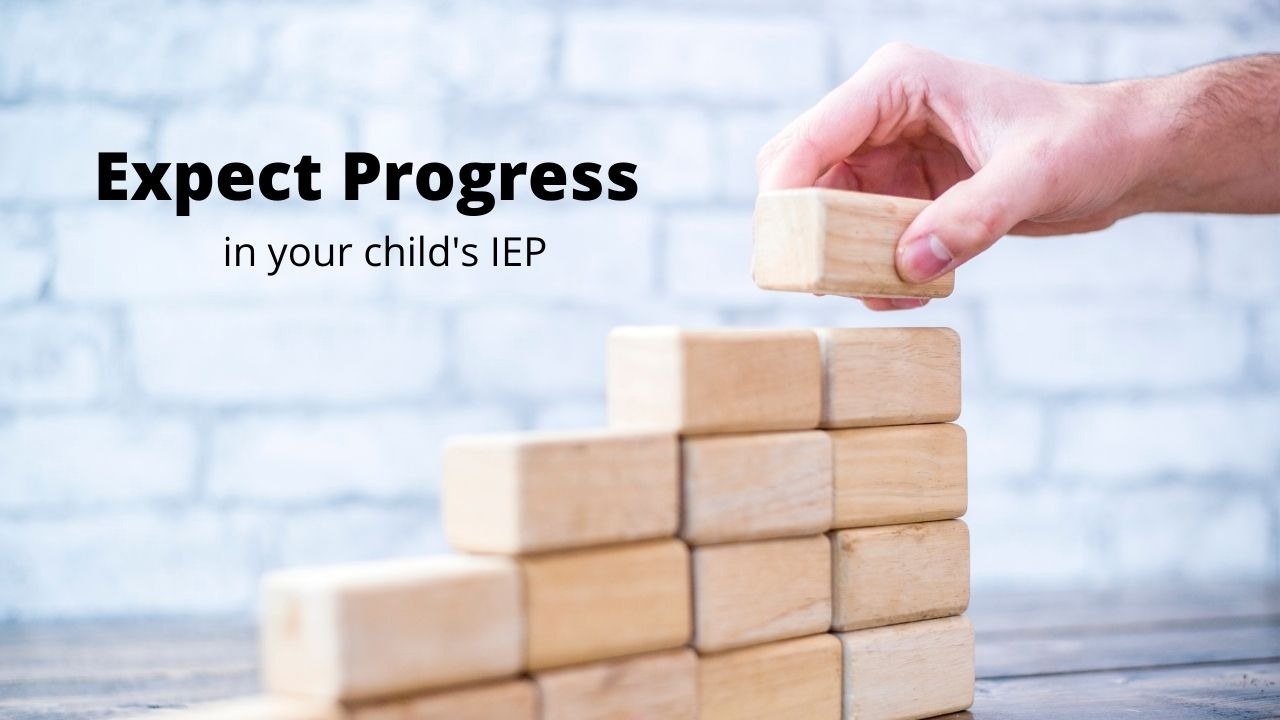How Does Progress Fit Into The IEP Process?

Over the last 40 years I have been involved with children and their families, I am often asked, “What is the most important thing parents should focus on.” In almost every instance, I immediately reply, “PROGRESS.” Three of the most important reasons are discussed below.
Progress is Legally Required
The law is written to ensure progress to the maximum extent of the child’s circumstance. Why does the law place emphasis on progress? Progress gives concrete evidence whether or not the IEP are goals are appropriate AND measure the effectiveness of the current program. If the child is not learning or making progress it is always time to re-evaluate. Never be afraid to initiate an IEP at any time when you feel your child is not progressing. You do not have to wait for the next annual IEP to get your child help! Be proactive and aggressively pursue help if progress is not being made.
Progress Parallels Expectation
If the child is not progressing, the program needs to be modified or changed to help the child reach the potential they are capable of given their circumstances. The most important thing is to develop a collaborative approach between families and schools. Collectively, we all need to identify the barriers and come up with solutions that keep the child’ s progress and success at the center of everyone’s focus.
When evaluating progress think about what your vision is for your child. What outcomes do you want; a job, apartment, family, independence? Always reach high, if you don’t get there, you’ll still be in better place than where you started. Reach too low and you will not go anywhere. Remember the “self-fulling prophecy”? You only get what you expect to get. Expect progress.
Progress Requires a Wholistic Approach:
Unfortunately, progress can be used in different ways. When a child has shown progress, schools may feel they must decrease services, declassify or even use a child’s higher skill levels to determine that they are not eligible for services at all.
Again, we need to look across all skill areas when looking at progress. Strong academic skills do not mean that no other services are needed. Having an “educational impact” is the criteria for skills that require support. This includes social skills, emotional development and other non-academic areas. How will a person function in society with ONLY good academic skills BUT poor ability to socialize, listen, respond to others appropriately, and/or follow directions and comply with rules? Evaluating progress does not pertain to only academics but requires a more wholistic approach that will help the child succeed in life beyond their school years!
Next we will look at the best ways to measure progress.



